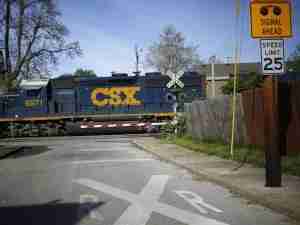Colombia court prohibits overnight use of Fenoco coal railway
By: Reuters | Jan 21 2015 at 05:16 PM | Intermodal
Colombia’s constitutional court has ruled that the private Fenoco coal railway, which transports a large share of the fuel mined in the world’s fourth-biggest exporter, can no longer run overnight due to noise, a decision that could hit exports.
The ruling will halt the train between 10:30 p.m. and 4:30 a.m. (0330-0930 GMT) and will take effect once the company and local authorities have been notified by a regional judge, said a press officer at the constitutional court.
Fenoco representatives could not immediately be reached for comment. The company was banned from running trains at night near populated areas in early 2013 by environmental authorities but the decision was overturned within weeks.
The railway line has capacity to transport more than half of Colombia’s typical coal output but the total amount of cargo it can carry is likely to be reduced with its operating hours shortened by six hours per day.
The court ruling is the first major disruption to Colombia’s coal sector in almost a year. Output was hit in 2013 and early 2014 by strikes at the country’s biggest miners and problems affecting ports and railways.
Colombia produced 85.5 million tonnes of coal in 2013 and aimed to produce 89.1 million last year though the final figure is not yet known. Coal prices in Europe, Colombia’s biggest client, are close to nine-year lows at $59.35 per tonne.
The complaint was brought by 139 residents of the town of Bosconia which lies about halfway along the 226-km (140-mile) track owned and used by U.S.-based miner Drummond Co Inc , Glencore’s Prodeco unit and Goldman Sachs affiliate CNR. They also said dust blowing from the trains was harming their health.
Colombia’s biggest coal producer, Cerrejon, a joint venture between Anglo American Plc, BHP Billton Ltd and Glencore Plc, has its own railway and is not affected.
The ruling was made by the Andean country’s highest court, limiting Fenoco’s options to appeal.
The decision was reached last September but two of three judges involved requested changes to the details of the original ruling, a process that would have been completed by November except for a strike by the judiciary, the press officer said.







